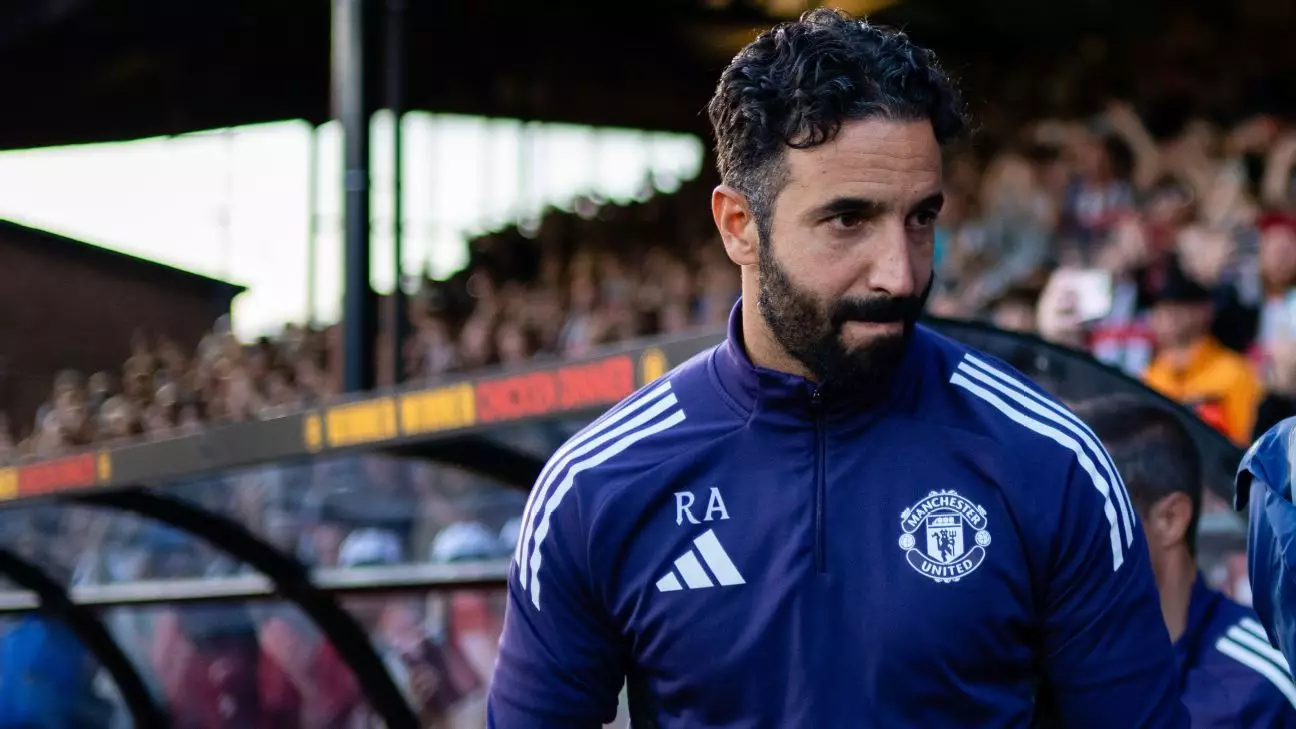Ruben Amorim finds himself at a pivotal crossroads, with his position as Manchester United’s manager hanging in an uneasy balance. While he publicly states his intention to remain at the helm, he simultaneously concedes that he cannot guarantee he will still be in charge after the international break. This admission reveals a deep-rooted uncertainty that undermines any notion of stability within the club. The recent embarrassing defeat against League Two side Grimsby Town in the Carabao Cup has intensified scrutiny on his leadership, casting doubts about his resilience to withstand mounting pressure.
Amorim’s nuanced words suggest a man caught between ambition and reality. Even as he proclaims his ongoing commitment to Manchester United, his acknowledgment of possible change reflects a fragile confidence, which can influence the team’s mindset. His comments about evaluating his position with club officials during the upcoming break indicate that this period could very well serve as a turning point—either for redemption or the end of his tenure. This mental battle underscores the challenge of guiding a team that’s visibly struggling to shake off last season’s poor results.
Struggles and Self-Reflection Amidst Stumbling Results
The recent setbacks have visibly shaken the Portuguese coach and exposed vulnerabilities within United’s squad. After a narrow 1-0 loss to Arsenal and a disappointing 1-1 draw with Fulham, fans and pundits alike are questioning whether Amorim can reverse the tide of underperformance. His comments about being “shocked” by the loss to Grimsby highlight his frustration and concern over the team’s mental state—a team he perceives as still haunted by the scars of last season’s historic decline to 15th place.
Rather than focusing solely on results, Amorim emphasizes the style and attitude of play. His criticism of the players’ mental fragility reveals a deeper issue: a team still emotionally wrapped up in past failures, unable to fully commit to the present challenge. His remark about players “thinking about the past” paints a picture of a squad in mental disarray, which impairs performance and confidence. For a manager aiming to rebuild a storied club’s winning culture, these psychological hurdles are arguably even more daunting than tactical adjustments.
The Broader Context and Uncertain Future
Amorim’s situation is further complicated by external factors, notably rumors regarding potential player transfers—specifically the possibility of Manchester United accepting a bid for Anthony from Real Betis. Such speculation adds layers of uncertainty, not only about squad stability but also about the club’s strategic direction. The timing of these developments coincides with Amorim’s own precarious position, hinting that external pressures may influence whether he remains in charge or is replaced.
This turbulent backdrop raises vital questions about leadership, resilience, and the capacity to steer a wounded giant back to greatness. Amorim’s honest, yet ambiguous, stance about his future exemplifies a manager under immense strain, trying to stay focused amid chaos. The next few weeks will test both his mental fortitude and his tactical ingenuity as he attempts to galvanize a faltering team. Ultimately, whether Amorim can survive the storm or becomes a cautionary tale depends on his ability to navigate internal doubts and external pressures—and to inspire a battered United squad to rediscover its fighting spirit.

